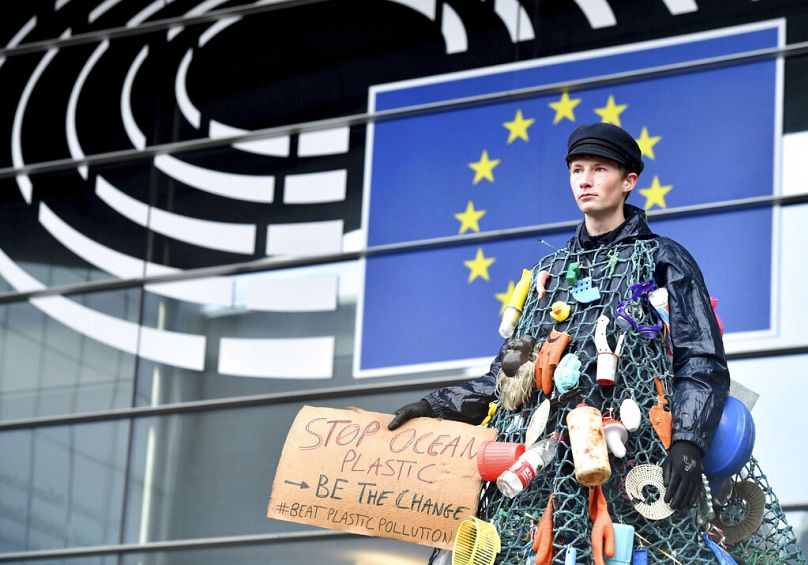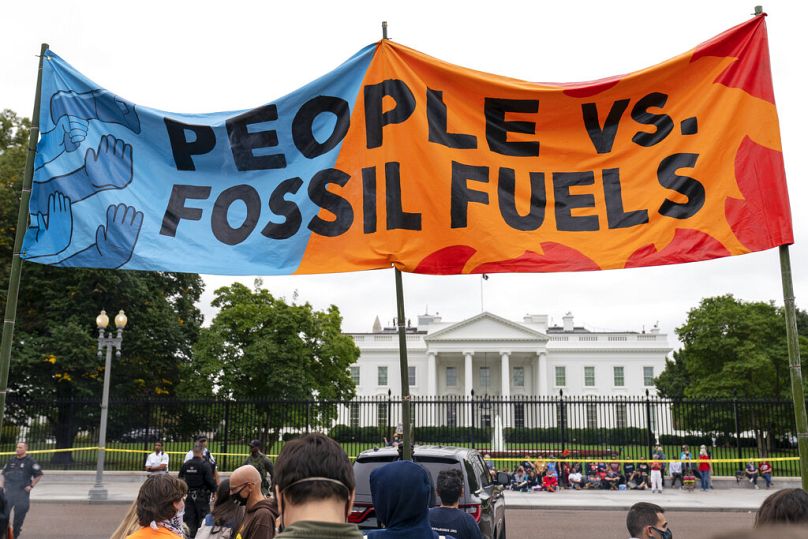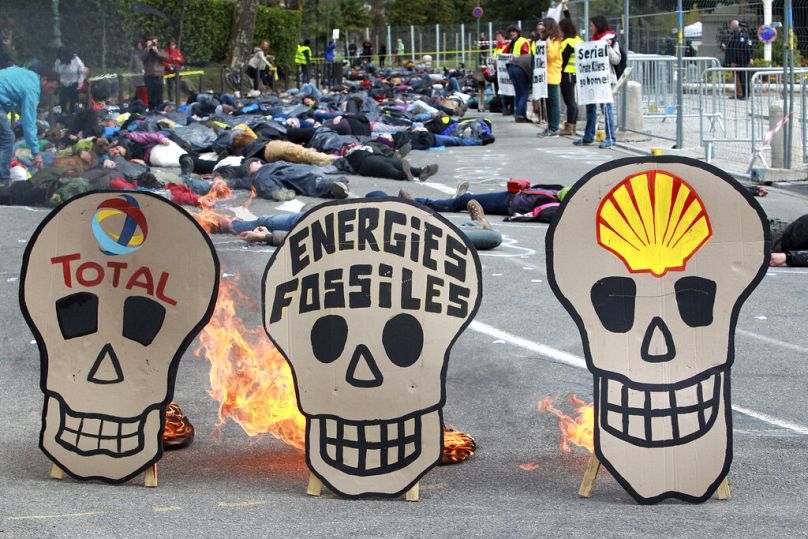The countdown before climate mayhem has started, and it is high time to phase out the fossil fuel industry’s influence on public institutions, MEPs Manon Aubry, Michael Bloss and Pierre Larrouturou write.
The race to curb greenhouse gas emissions and save humanity from the chaos of climate change has started, and we are not moving fast enough.
We need drastic public policies to quickly and equitably phase out fossil fuels, but lobbyists from the coal, petrol and gas industries are slowing us down to protect their own profits.
For the first time ever, ahead of COP28 later this year, organisers of the UN climate talks have taken a significant first step toward addressing the influence of the fossil fuels industry over the negotiations.
As Members of the European Parliament, we’re calling on the European Union to fully support the UN proposals but also to go a step further and lead by example. Will the EU take steps to protect its own decision-making from fossil fuel industry lobbying?
Humanity’s survival is threatened by fossil fuel consumption
Canada is burning under more than 400 wildfires, with an area larger than the Netherlands already down to ashes (5 million hectares of forest).
Ocean temperatures have risen 1.32 degrees above average in the North Atlantic and 0.85 degrees above average in May globally, startling scientists and leading to disastrous effects on the ocean’s biodiversity and its capacity to absorb CO2 while also paving the way for months of hurricanes and extreme weather events.
The survival of humanity, starting with the most vulnerable populations, is threatened by fossil fuel consumption. Fossil fuel industries, on the other hand, are recording their highest profits to date.

The climate chaos unfolding in front of our eyes is the consequence of short, middle and long-term political decisions to have our entire economy rely on the consumption of petrol, coal and gas.
The survival of humanity, starting with the most vulnerable populations, is threatened by fossil fuel consumption.
Fossil fuel industries, on the other hand, are recording their highest profits to date, with the five major fossil fuel companies earning more than $200 billion (€182.6bn) in 2022 and will defend their lucrative business model by all means and at all costs.
The EU has to answer the calls for integrity
To phase out fossil fuel in the wake of the climate crisis, the EU must keep polluters like Shell, TotalEnergies, BP and Eni away from political decision-making.
The Kick Big Polluters Out campaign, representing millions of people, including climate justice groups, women and gender groups, trade unions, Indigenous peoples and youth, has been campaigning for this at the UN level for years, supported by progressive governments from around the world.

After members of the Kick Big Polluters Out coalition revealed that more than 636 fossil fuel lobbyists had attended COP27, some 130 US and EU decision-makers wrote to US President Joe Biden, European Commission President Ursula von der Leyen and the UN, echoing the long-standing calls for a conflict of interest policy beginning with the public disclosure of all participants.
The UN has heard and answered one of their demands, which must become a necessary first step towards a robust conflict of interest framework. For the first time, participants at COP28 will have to publicly disclose their affiliation with big polluters before participating in political events.
After the UN announcement, it is now high time for the EU to answer the calls for integrity and lead by example.
Doing so will have an immediate impact on its efforts to fight the climate crisis: the EU takes decisions directly affecting the development of the fossil fuel industry, including granting public funding, authorising the construction of pipelines, and signing commercial agreements with fossil fuel-producing countries.
Fossil fuel lobbyists’ power should be formally limited
While the EU has general rules against undue lobbying in place, it urgently needs measures and control mechanisms to limit fossil fuel lobbying.
Fossil fuel influence at the EU level has reached an all-time high with the creation of the EU Energy Platform Industry Advisory Group at the request of oil and gas majors, a group including BP, Total and Eni directly advising the European Commission on energy policy.
Launched in 2019 by almost 200 civil society organisations, the Fossil Free Politics campaign is calling for formal limits to the power of fossil fuel lobbyists in Europe in the same way we have for the tobacco industry.

This platform has pushed the EU’s response to the energy crisis towards building out a wave of new infrastructure to import fossil gas rather than planning a much-needed phase-out.
Launched in 2019 by almost 200 civil society organisations, the Fossil Free Politics campaign is calling for formal limits to the power of fossil fuel lobbyists in Europe in the same way we have for the tobacco industry.
There is a global agreement to restrict Big Tobacco lobbyists from influencing public health policy, which we implement in Europe and has freed up space to deliver policies that save lives.
It’s high time to phase out fossil fuel influence on our institutions
After having been lobbied by the fossil fuel industry for years and seen up close how they have weakened, delayed, and sabotaged strong European climate policy, we believe it is time for the EU to restrict fossil fuel lobbyists’ access to decision-making and to help ensure the UN continues to take steps to do the same.
We propose that the EU leads by example by adopting a framework of rules on fossil fuel control applicable across EU institutions.
Furthermore, the EU should advocate for a similar international convention against the devastating impacts of fossil fuels and their undue influence over public decision-making.
This is not unprecedented. 182 parties have ratified a comparable Framework Convention on Tobacco Control of the WHO.
The countdown before climate mayhem has started, and it is high time to phase out the fossil fuel industry’s influence on public institutions.









